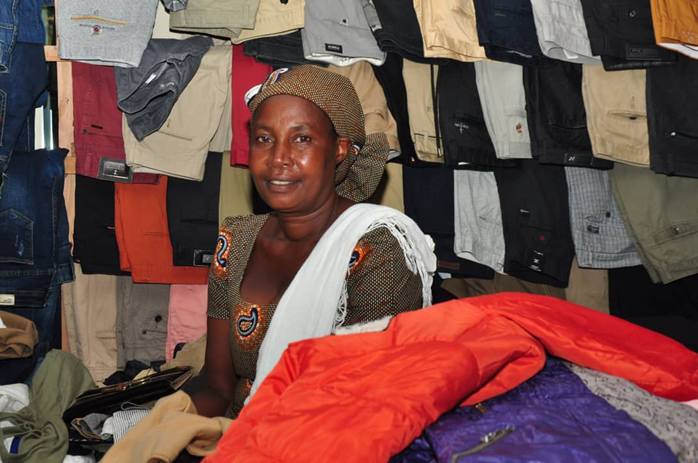
Continuing our series of articles from our Annual Report 2020/21, we outline here our work on our mpowering Vulnerable Genocide Widows in Western Rwanda to Alleviate Extreme Poverty (EVWEP) Project.
Survivors Fund (SURF), in partnership with AVEGA Agahozo, were awarded a grant of £249,613 for a 30-month project from UK Aid Direct, the challenge fund of the UK Foreign, Commonwealth and Development Office (FCDO) supporting civil society organisations to achieve sustained poverty reduction.
The Empowering Vulnerable Genocide Widows in Western Rwanda to Alleviate Extreme Poverty (EVWEP) project started up in October 2019 and is aiming to empower 1,050 vulnerable genocide widows and 4,000 of their dependents in 33 sectors of Rusizi and Nyamasheke Districts of Rwanda’s Western Province by March 2022.
To achieve this, we are mobilising widows, and other economically active members of their household, to form into self-help groups, facilitated by AVEGA’s volunteers, and supported by AVEGA’s project staff in all thirty-three sectors. SURF’s experience demonstrates that with the right support it is possible to secure and improve incomes for even the most vulnerable widows, if training, start-up capital and ongoing assistance – particularly mental health support – is made available. However, this is contingent on addressing holistically the multifaceted needs of the target group, which includes access to sustainable energy sources such as solar lights and clean cookstoves, and kitchen gardens for greater food security.
To date, 1,430 survivors have been supported to join income generating activities groups. The project has enabled SURF and AVEGA to help 648 survivors to start small businesses. The total amount of loans paid out at the end of 2020 is Rwf 22,256,100 (GBP 16,937). The beneficiaries who have received the loans are supposed to pay back within a period of six months and they make payments twice a month. By the end of the year, Rwf 6,685,400 (GBP 5,087) had already been paid back. This has enabled beneficiaries to start their businesses, for example participating in agricultural projects, trading in food staples and setting up small shops among others. Even though we have beneficiaries who are using bank loans, there is a good number of beneficiaries (175) who have started their small businesses using loans from savings they have accrued in their groups, which can be accessed at lower interest rates. They have reported Rwf 1,754,150 (GBP 1,334) as the total amount invested in their small businesses. On this project we have provided mental health support to a total of 3,048 direct and indirect beneficiaries.
In addition, 1,272 people have received both group and individual counselling sessions made available by the project, to help them increase the confidence and trust in the community and foster hope for their future. This project has also provided solar lights and energy saving stoves to 402 people to enable them to reduce expenditure on lighting their homes and firewood and helped them to save money to start small businesses. As well, 66 community volunteers have received training sessions on active listening and how to help vulnerable genocide survivors and they will keep helping them in their communities, even after the project closes.
Noella*
Noella is one of the project participants. She is a 52-year-old genocide widow living with her two children in Nyamasheke district in the Western Province of Rwanda. She lost her husband and three of her children during the genocide. Before joining the EVWEP project, she had a very miserable life living in extreme poverty and isolation. Her only main source of income was through cultivation, which was not enough for her to meet her basic needs.
Noella attended the training on the entrepreneurship program and she started saving.
“I have now saved some money and I know the basics of how to set up and run a business. I did not know about savings but now my mind-set has changed a lot. Now I have 82,000 Rwf (c. GBP 82) from my own savings. I have applied for loans through Urwego Bank and I have received 150,000 Rwf (c. GBP 150) as funding to set up my business of selling clothes. I am very happy about the project, for not only getting money but also the most important thing is to have skills of managing money better. Which is good for my business, as well as my household. I am no longer living on the breadline, and I see a much better future ahead for me and my two children.”
